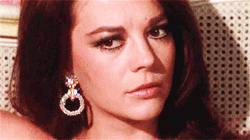
Until his death on Monday 11 January,[This was written in 2010.] I would often say that Eric Rohmer – born Jean-Marie Maurice Scherer almost 90 years earlier – was in my opinion one of the world’s two greatest living filmmakers. The claim would often be greeted with derision or, at the least, a raised eyebrow. But can you think of any other major body of film work that doesn’t include a single bad film? Rohmer really was different: he knew what he wanted to do when he started out as writer-director, and he stuck to it, stubbornly and gloriously. Whether it’s to one’s personal taste is neither here nor there.
In terms of the consistency of his films’ content and form, Rohmer was undoubtedly one of the most distinctive auteurs in movie history. As with Ozu, just seconds after you start watching one of his films, it’s clear who made it. Not that the style is flashy; like Hawks – one of the Hollywood directors he championed as critic and editor of Cahiers du Cinéma in the ’50s and early ’60s – Rohmer kept technique invisible. So ludic and deceptively simple was his aesthetic that some dismissed it as ‘talking heads’. That assessment is right (but not bright) in pointing to his love of conversation, and accurate insofar as it hints at his interest and expertise in exploring everyday feelings, thoughts and ideas rather than depicting the kind of extraordinary actions most directors favour. Still, it ignores the remarkable emotional, intellectual and dramaturgical subtlety of his work. A Rohmer film is not merely a drama or a comedy, a love story or an exercise in suspense, a psychological study or a philosophical disquisition; it’s all these and far, far more. Whether an original piece or an adaptation, set in the present or past, city or country, it’s always first and foremost a Rohmer film. He invented his own genre.
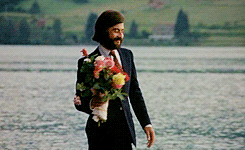



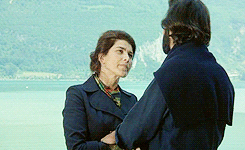



Source: marypickfords

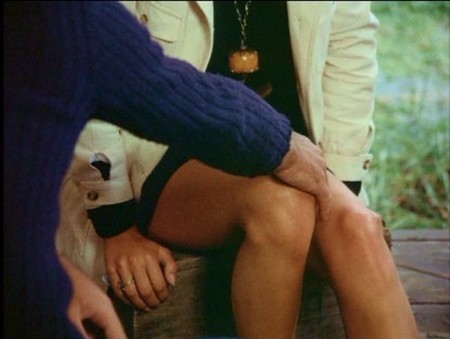
Every woman has her most vulnerable point. For some, it’s the nape of the neck, the waist, the hands. For Claire, in that position, in that light, it was her knee.
That’s true of his 1962 debut ‘The Sign of Leo’ and of such seemingly ‘atypical’ works as ‘Perceval le Gallois’, ‘The Lady and the Duke’ and his lovely swansong ‘The Romance of Astrea and Celadon’. but it’s most obviously apparent in the three themed series of films he made during his steadily productive half-century career: ‘Six Moral Tales’, ‘Comedies and Proverbs’, and ‘Tales of the Four Seasons’. Rohmer embarked on the first series as a way both of securing finance and of helping viewers get used to his genre-free, unfashionably ‘literary’ narratives. But the strategy also allowed him to create a superbly imaginative set of variations on a single surprisingly rich theme, and to bring his idiosyncratic style to maturity in a very short time.

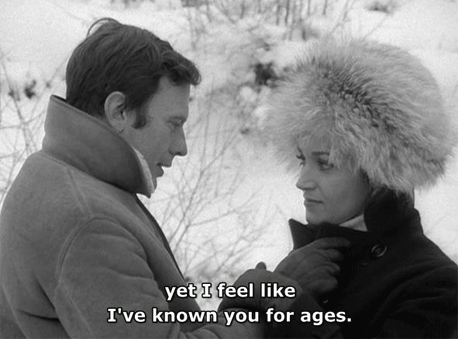
Source:
Rohmer’s first outright masterpiece – and international hit – was 1969’s ‘My Night with Maud’, a black-and-white gem set in snowy Clermont-Ferrand offering much conversation inspired by Pascal’s famous wager. Here he revealed his genius for illuminating abstract ideas and complex emotions not only through dialogue (which may or may not express the truth) but through glances and gestures. Thus, the doubts underlying a Catholic engineer’s faith in God and free will are made hilariously clear as he lies atop a bed trying to ignore the beautiful, sleeping, naked divorcee next to him. The metaphysical, in short, is made physical.

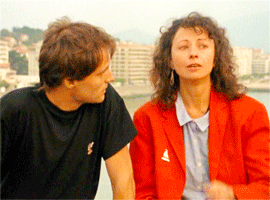







 Source: mabellonghetti
Source: mabellonghetti
Rohmer’s is a philosophical cinema, then, but – crucially – it was also rooted in the rhythms and rhymes of daily life: he wasn’t interested in big dramas, but devoted great attention to getting things like time, place, light and sound just right. Often, substantial sections of his films feel like documentary (precisely because, in essence, they are), while ‘The Green Ray’ – another masterpiece – was almost totally improvised; in this respect (among others), he not only stayed true to his nouvelle vague beginnings but anticipated the likes of Kiarostami, Pedro Costa, Jia Zhangke et al. By focusing on evocative specifics, he made his erudite, eloquent, allusive films feel wholly authentic as intimist studies in human behaviour, desire, need and motivation. Meanwhile, the endless, generous, non-judgemental fascination with individuals in all their faintly absurd, self-deluding vanity and undiminished dignity speaks of his profoundly humane but never sentimental compassion.
Like his work, Rohmer was quiet, modest, enormously articulate and wonderfully interested in life. I had the good fortune and rare privilege to interview him four times; once he even let me take his photo – and agreed to its appearance in Time Out. The last time we met, to talk about ‘Astrea and Celadon’, he told me he felt he no longer had the physical strength to make another feature film; he felt very lucky, however, that he’d been able to make the films he wanted exactly as he wanted to make them . He had a truly magnificent innings – for once, that word ‘unique’ really is appropriate. It’s our loss that we shall never again be able to see a new Rohmer movie, our gain that he left us so many treasures.
Author: Geoff Andrew

True, it’s not new, but this is it’s first American release. Esco saw it and can testify it is marvelous.

























 Source:
Source: 









